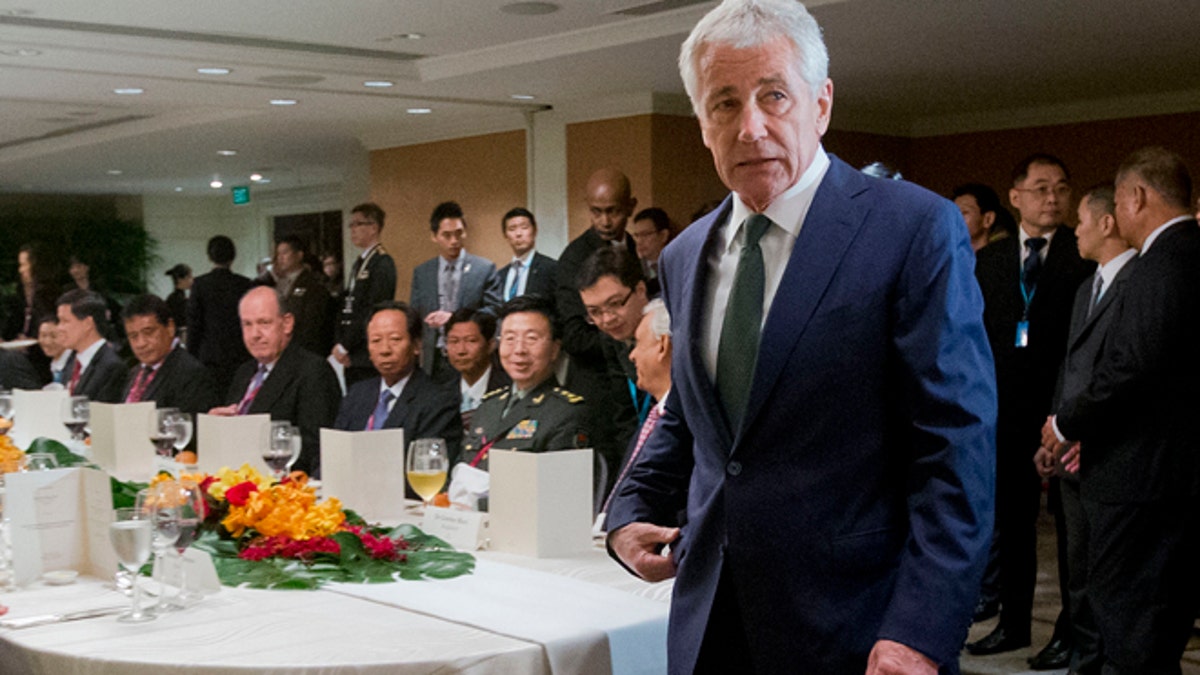
May 31, 2014: US Defense Secretary Chuck Hagel walks to his seat as he arrives for the official luncheon at the 13th Asia Security Summit in Singapore. (AP/Pool)
Chinese defense officials reacted furiously to U.S. Defense Secretary Chuck Hagel's assertion that China has undertaken destabilizing actions as it pursues its territorial ambitions in the South China Sea.
Rebutting Hagel's remarks, offered in a speech Saturday at the Shangri-La Dialogue, a regional security summit in Singapore, Maj. Gen. Zhu Chenghu told The Wall Street Journal that the charges are "groundless" and that "the Americans are making very, very important strategic mistakes right now" in their approach to China.
Gen. Zhu, who is a professor at China's National Defense University, accused Hagel of hypocrisy in his assessment of the region's security landscape, suggesting that in his view "whatever the Chinese do is illegal, and whatever the Americans do is right."
Rather than lecture and accuse China, Gen. Zhu said that the U.S. "should treat China as an equal partner, instead of as an enemy."
"If you take China as an enemy, China will absolutely become the enemy of the U.S.," he warned. "If the Americans take China as an enemy, we Chinese have to take steps to make ourselves a qualified enemy of the U.S. But if the Americans take China as a friend, China will be a very loyal friend; and if they take China as a partner, China will be a very cooperative partner."
As a two-star general—and a military academic—Gen. Zhu isn't part of China's senior military leadership. But his views reflect the deep sense of mistrust within some parts of the People's Liberation Army toward the Obama administration's "pivot" to Asia, and America's true intentions toward China. China didn't send its top-level defense officials to the Shangri-La gathering, instead relying on a number of English-speaking academics and PLA officers to rebuff accusations against Beijing.
Gen. Zhu's comments were echoed during a spirited question-and-answer session following Hagel's speech. In the session, PLA Maj. Gen. Yao Yunzhu questioned America's repeated claim that it doesn't take sides in territorial disputes, asking how that can be true when the U.S. also claims the disputed islands in the East China Sea are covered by a U.S. treaty with Japan.
